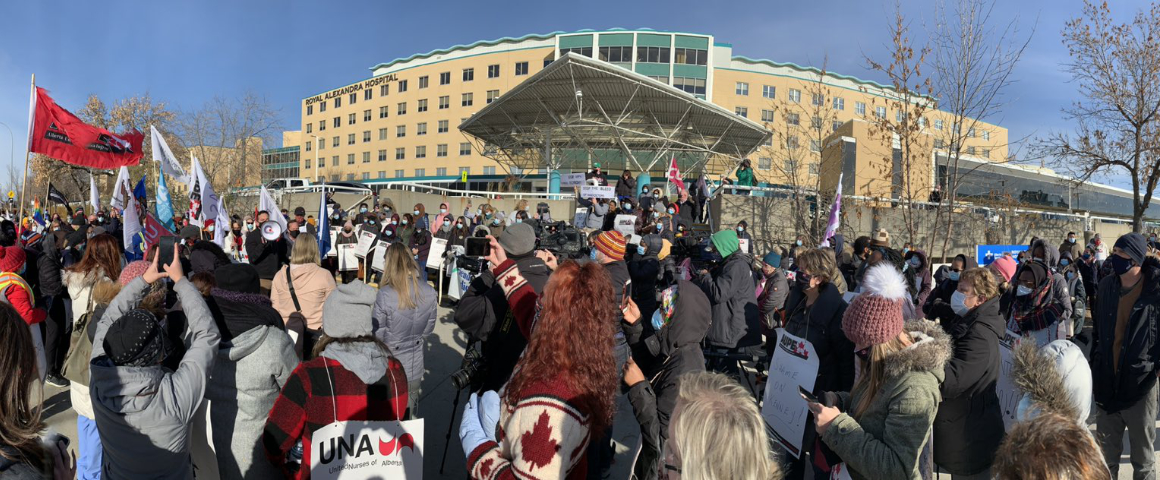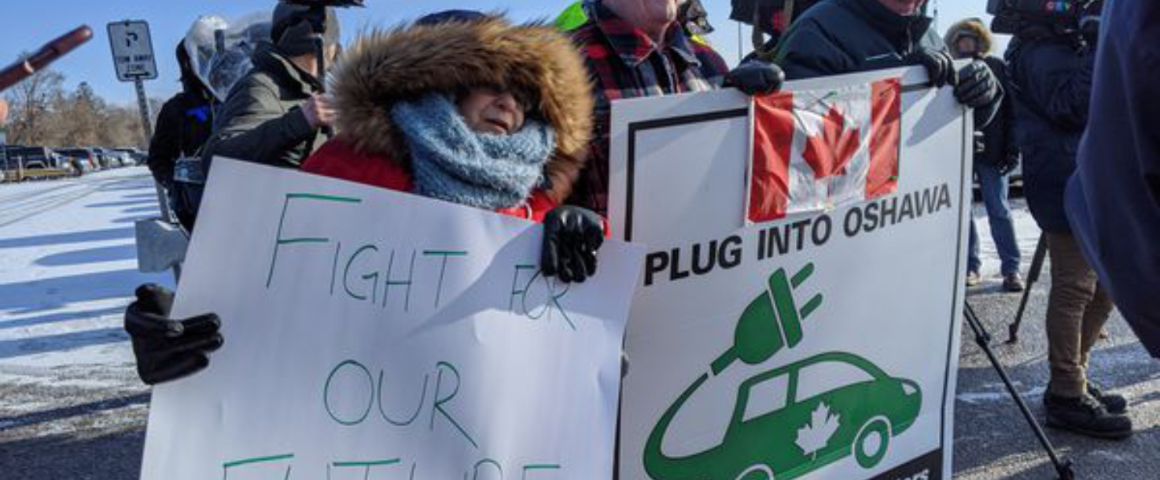By Parker Palmer
“The number of Toronto paramedics who are saying no to overtime shifts to highlight the city’s need for more EMS workers has doubled” (Toronto Star)
As negotiations heat up between the city of Toronto and paramedics represented by the Toronto Civic Employees’ Union (TCEU – CUPE Local 416), you would be forgiven for thinking that the above statement was recent. In fact, that Toronto Star article was written 13 years ago.
Despite at least a decade of mounting evidence of a crisis and a continuous chorus of alarm bells sounded by workers and their unions, the situation for municipal employees, including paramedics, has only deteriorated since.
In 2012, the city manager told the public “We’ve been responding with business as usual,” a reference to the city’s response the weekend the article was published, but also inadvertently alluding to government inaction in the face of decades of social service deterioration at the hands of neoliberal austerity.
A systemic problem
Reading about the current conflict between municipal unions and the city, you would be forgiven for thinking that the problem was purely local. The narrative has been, sometimes justifiably, that the city refuses to fund and manage the paramedic service correctly and we are therefore now in an emergency situation as ambulance response times continue to climb. The same story is told about the shelter system, municipal housing or parks.
However, if this is only an isolated municipal issue, why are ambulance services in Britain and the US suffering similarly? Is it merely coincidence that disparate paramedic services, who largely follow similar procedures and organizational structures, are in crisis all at once? Moreover, is it by chance that a similar crisis is afflicting emergency medicine in hospitals, whose funding structure is not municipal at all? What about housing?
For many of us, the answer is obvious: these crises are happening simultaneously because – while there are obviously other issues at play including ones relating to management, productivity, organization and efficiency – our communities are ultimately being crushed by the blight of austerity, one of many political projects aimed at dismantling public services to create new capital markets for private interests. But this is not how the public, or even many workers, understand the problem.
Many working people assign blame by pointing to the city executive or a specific municipal service itself as the main culprit. People are adept at internalizing interpersonal narrative stories – not just because they are easier to follow, but also because they’re rife with drama and intrigue. It’s easy to digest a story about the supposedly pro-labour Mayor Olivia Chow facing off with unions in a battle of wills. Or think about the ubiquity of anti-Trudeau thought.
For workers engaged in the struggle, management becomes the main foil. This is especially true when the most common “analysis” is that public services should be run as businesses, and the problem is public bloat leading to inefficiencies as fat cat municipal bureaucrats try to protect their cushy jobs to the detriment of “the taxpayer.” Elon and Vivek have made this their cause célèbre south of the border.
And of course, some of these narratives contain truth. For example, municipal services are sometimes inefficient: this year, the Auditor General announced that the city of Toronto spent $11 million on unused software and $36 million on software licenses for former or inactive employees.
There is also a genuine conflict between city management and workers as the city looks to squeeze increased productivity from an already bled stone, using industrial efficiency techniques antithetical to normal human operation. Commonsensically, the proximity of the municipal government to its employees would suggest that this antagonism is the primary conflict to overcome.
Class struggle goes beyond the contract
In this struggle, there is a seed of class consciousness. Certainly, municipal workers have built lines of solidarity to fortify themselves with an understanding of the commonality of their struggle. They correctly identify one of their enemies: the boss. But, like many union struggles, the goal often begins and ends with a good contract. This is the case with paramedics, who look at the greener pastures of other first responders, instead of thinking about the enfranchisement of the entirety of the working class.
Contract tunnel vision and the proliferation of business unionism, combined with an aggressively anti-worker media environment and legislature, has led to the public’s dismal view of unions generally. A poll taken in 2022 highlighted paramedics as the number one most respected profession in Canada with a score of 92. In the same poll, union leaders – the ones ostensibly representing paramedics – scored a failing grade of 42, placing them in the bottom five. Sandwiched between business executives and MPs, union leaders have never kept worse company. With stagnating wages, increasingly unmanageable work environments, decaying social conditions and sometimes downright offensive collective agreement capitulations, it’s no wonder many workers question paying their dues.
But the holistic view is complicated and overwhelming.
“As a political project, neoliberalism has been characterized by a capitalist class and state offensive in which the aim has been to rescind the collective gains made by labour in the quarter-century following World War II, while at the same time extending new forms of commodification”, explains Carlo Fanelli in his indispensable Megacity Malaise, which documents worker struggles in Toronto.
But despite the necessity of understanding this phenomenon, who is going to have luck diving into it with their work buddies over a beer? Especially when our current political climate has been characterized by nihilism, overwhelm and exhaustion.
Of course, this is nothing new. Marxists and social activists of all stripes have struggled with promoting class consciousness ever since the concept was identified. Luckily, we have decades of history to educate ourselves. And class solidarity is as important now as it ever has been.
One of the foundational issues that triggered the strike by 55,000 postal workers was the fight against job precarity. As a result of working-class struggle, proletarianization has not always meant destitution but, at times, the proliferation of well-paying, full-time work with benefits and a pension. Postal workers identified that Canada Post pushing for temp and part-time labour was the first battery in an attack on their livelihoods, an attack waged successfully in the so-called “gig economy” by Uber and their ilk. On the CUPW strike lines, workers related stories of friends and family cobbling together 2 to 4 jobs just to afford the necessities.
That postal workers were standing around an oil drum in below freezing temperatures – not just for themselves, but for all of us – was not a narrative widely promoted. But that’s exactly the story that needs to be told to people in Canada, who don’t realize that gig, part-time and temp labour will come for them too. Amazon, who offered Canada Post a horrible contract they rightly turned down, relies heavily on gig logistics (“Delivery Service Partners”) and ruthlessly terminates their contracts when they deign to unionize. Workers worried about robots coming for their jobs are missing the forest for the trees: is automation the threat, or is the real menace when the threats are in the hands of capitalists?
Unions are a bulwark against the excesses of capital, but as we’ve seen since WW2, that bulwark has been in steady decline, as union power and presence is worn down by unremitting attacks. Often bargaining teams will tell their members they “can’t do better” and point to the attacks they parried from management as a success. But a defence is not a victory, and eventually a garrison under siege will starve. With a stagnating economy, years of inflation and a cost-of-living crisis, workers cannot be and are not satisfied with a defence leaving them to eat moldy carrots.
The state is not a neutral body
The Canadian government on the other hand relishes it. Whether through absurd legal hurdles that gatekeep worker strikes, to the anti-worker “comparator” assessments of binding arbitration, or the flagrant uses of “back to work” legislation, it’s difficult not to see the government as a reserve army when employers can’t get their way through brute force.
Solidarity within a union is meant to show a united front to management, a disciplined army that will not wither or abandon when the battle commences. Union solidarity is a coalition amongst different unions, creating a much larger united front that is not as easily isolated and broken. Working-class solidarity is the realization that this is still not enough, and for the battle to be finally won, we must commit ourselves to socialism. But with most workers not unionized, many unions not disciplined and few large coalitions, the path to class consciousness remains a tricky one.
But there is hope. Despite CUPW’s rights being crushed by legislators, 62 percent of posties voted to stay on the strike line, defying government dictates like the unions of old. As the collaborators of business unions are found wanting, workers will inevitably search for alternatives. In this is an opportunity for socialists to inject class into the conversation, use the continued immiseration of the working class as a stepping stone to broader analysis and broader horizons. Create a vision of a world beyond doomsaying and exhaustion, where we deserve and have more, where the fruits of our labour are shared in concert.
[Photo: Alberta health workers take wildcat political strike action in 2020]
Support working-class media!
If you found this article useful, please consider donating to People’s Voice or purchasing a subscription so that you get every issue of Canada’s leading socialist publication delivered to your door or inbox!




